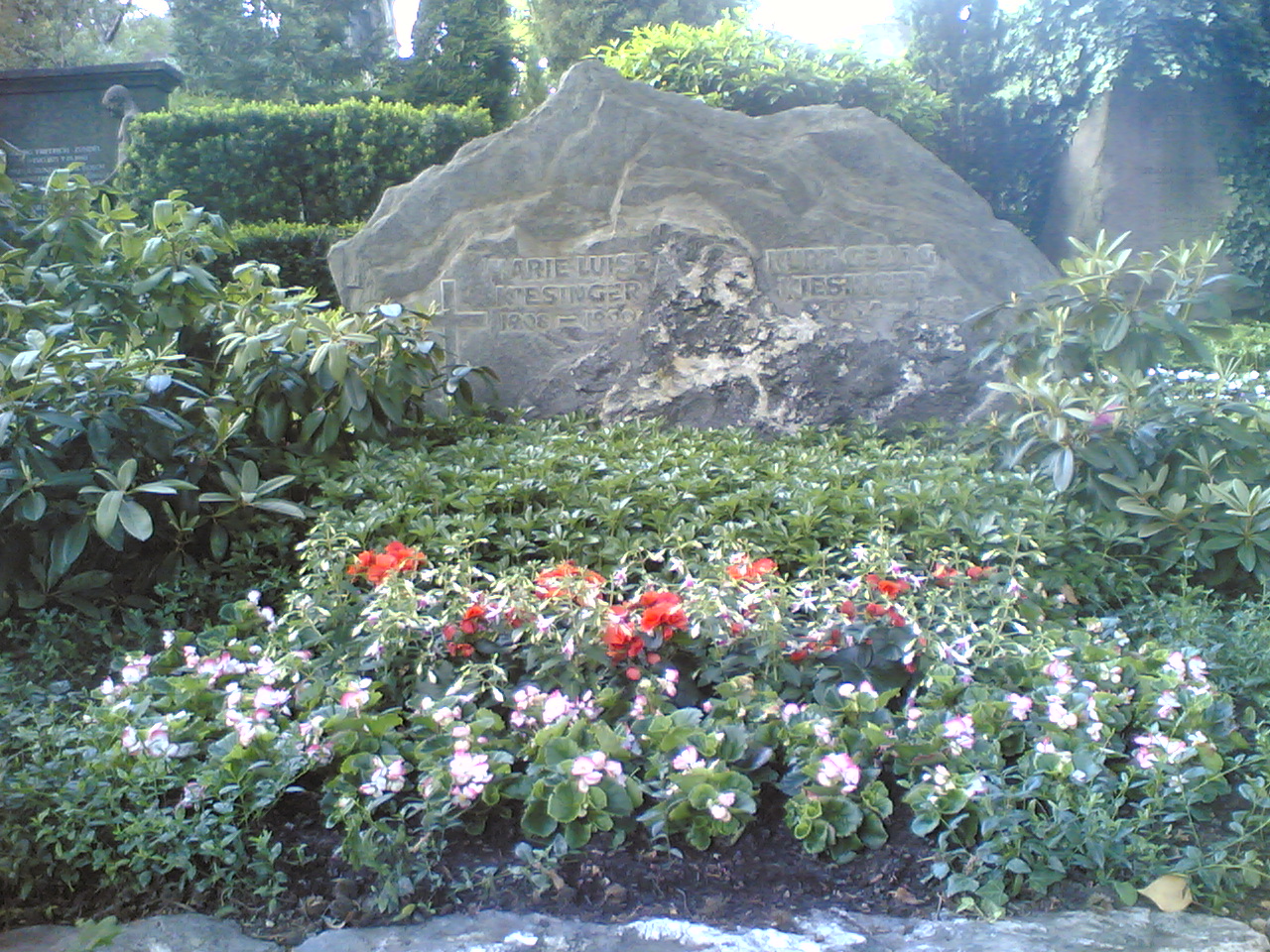Kiesinger, Kurt Georg, 1904-1988
Enlarge text Shrink text- Führung und Bildung in der heutigen Welt, 1964.
- His Dunkle und helle Jahre, c1989:t.p. (Kurt Georg Kiesinger) jkt. (became chancellor of West Germany in 1966; d. 3/9/88)
Kurt Georg Kiesinger (German: [ˈkʊʁt ˈɡeːɔʁk ˈkiːzɪŋɐ]; 6 April 1904 – 9 March 1988) was a German politician who served as the chancellor of West Germany from 1 December 1966 to 21 October 1969. Before he became Chancellor he served as Minister-President of Baden-Württemberg from 1958 to 1966 and as President of the Federal Council from 1962 to 1963. He was Chairman of the Christian Democratic Union from 1967 to 1971. Kiesinger gained his certificate as a lawyer in March 1933 and worked as a lawyer in Berlin's Kammergericht court from 1935 to 1940. He had joined the Nazi Party in 1933, but remained a largely inactive member. To avoid conscription, in 1940 he was appointed to the broadcast policy department of the Foreign Office by Joachim von Ribbentrop, and became deputy head of the broadcasting and propaganda departments in 1942. In 1946 he became a member of the Christian Democratic Union. He was elected to the Bundestag in 1949, and was a member of the Bundestag until 1958 and again from 1969 to 1980. He left federal politics for eight years (from 1958 to 1966) to serve as Minister-President of Baden-Württemberg, and subsequently became Chancellor by forming a grand coalition with Willy Brandt's Social Democratic Party. Kiesinger was considered an outstanding orator and mediator, and was dubbed "Chief Silver Tongue". He was an author of poetry and various books, and founded the universities of Konstanz and Ulm as Minister-President of Baden-Württemberg. Kiesinger is also considered controversial, which is mainly due to his affiliation and work with the Nazis. The student movement in particular, but also other sections of the population, saw Kiesinger as a politician who stood for the inadequacy of Germans' coming to terms with the past.
Read more on Wikipedia >
 Personality
Personality


.jpg)





